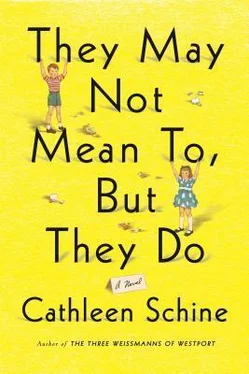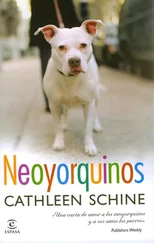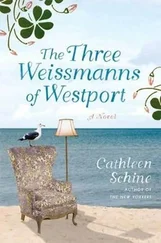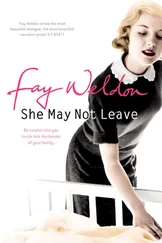* * *
She choked when Danny came to dinner. A piece of chicken flew out of her throat and landed on her plate, slimy and colorless.
The sounds were hideous, like a crow’s, like a gasping dying crow’s. KEH-KEH-KEH. She tried to drink water. No air came in, no air went out, her throat was closed and squeezing and pushing, and out came the piece of chicken in a gush of unswallowed liquid. It lay there in a pool of water like a tiny dead baby.
Danny had been pounding her on the back. Now he stood beside her staring at the lump of flesh in its little pond. “Jesus.”
Joy patted her mouth with her napkin, then spread it over her plate, covering the chicken.
“Jesus,” he said again. He stroked her hair. “Mom, can you talk?”
Joy put her head in her hands. She could talk. But what was there to say?
* * *
“So how’s Mom?” Molly asked Daniel later that night.
“She says she’s okay. She got a piece of chicken stuck in her throat. It was disgusting. And scary.”
“But she’s okay?”
“Yeah, yeah. You know her. She’s a trooper.”
* * *
“Daniel said you seemed pretty good,” Molly said to her mother the next day.
“We had chicken.”
“Are you getting out at all? You need to get out, see your friends.”
“Oh no. Not in this weather.”
“Aren’t you going stir-crazy?”
“You know, I’m a very busy person, Molly.” Joy gazed at the datebooks splayed in front of her on the dining-room table, one of them so old the cover hung off like an empty sleeve, an amputee’s empty sleeve. “Between losing things and looking for things I’ve lost and going to the bathroom,” she said, “well, the day just isn’t long enough.”
“You’re funny.”
“I’m not trying to be.”
Molly laughed. “You really are funny. Now make a date with a friend. With Natalie. Go to the 92nd Street Y the minute it gets warm enough, okay? I’m so proud of you, Mom! Daniel’s right. You really are a trooper.”
“She’s so strong,” Molly and Daniel told each other.
“Of course she misses Dad,” they added, “we all do, but what a terrible weight she’s been carrying all these years. Now, finally, she can have some time for herself.”
“I can talk to her now, really talk to her,” they said. “About me.”
She seemed to need them more than ever, which was gratifying, but she didn’t seem to need them too much, which was more gratifying still.
* * *
When the weather warmed up and the ice turned to broad rivers of slush, Joy did try going to the 92nd Street Y, to a poetry reading.
“Count me out,” said Natalie. “Poetry is depressing at our age.”
“Why at our age particularly?”
“Because everything is depressing at our age.”
The Y was dark and frequented by women who did not bother about their hair. The screaming children running in and out, who should have cheered her (that had always been one of her theories, that the generations should mix), were unsettling. She could feel her irregular heart beating more irregularly than usual and she went home.
* * *
When Daphne got back from Florida, Joy went out again to meet her at the coffee shop. They had not seen each other since Aaron’s funeral.
Joy said, “I miss Aaron. And I don’t like being alone.”
“The first year is the worst. Then it calms down to a dull roar.”
“How’s your boyfriend from down there?” Joy asked.
“Dead.”
Daphne had two other men she “went to dinner with”: one she had picked up at a coffee shop farther downtown near her apartment, the other the widower of an old friend. But it had been a hard winter for them, and for Daphne, too: “All my boyfriends are dead.”
Joy felt dizzy. Maybe matzo-ball soup and waffles was a bad idea. “I’m sorry,” she said.
“My kids think I should consider going into assisted living.”
“ Do they. Well, what do you think?”
“They worry because they’re not here. They want me to come to them in Cincinnati. Well, to a place near them in Cincinnati. I understand. But I can’t go to Cincinnati. I told them I’m staying, and it’s called ‘Aging in Place.’ That’s what the social workers call it.”
“You saw a social worker?”
“No, of course not. In Florida they talk about these things. It’s all the rage in the world of gerontology, otherwise known as Florida. Aging in Place.”
“Like running in place.”
“Going nowhere fast.” Daphne laughed.
“Whatever they call it, it’s better than a nursing home…”
“… In Cincinnati!”
“I read somewhere that Cincinnati is a very nice city. Or was it Charlotte?”
“The assisted-living place on Eighty-sixth Street is supposed to be beautiful,” Daphne said. “Leonard’s children sent him there, you know.”
“Leonard?” Leonard, their handsome classmate in college, Leonard who had proposed to her all those many years ago. A lot of men had proposed to her. Men did that in those days, proposed. Why? What was their hurry? Oh yes, the Korean War, that was it. She had expected Karl to propose, but he was more sensible than the rest of them, he was waiting until he had a decent job, that’s what he said when she told him she was going to marry Aaron. “I saw Leonard about a year ago. He drove past in a red Cadillac convertible with a woman half his age. If that.”
“He picked her up in a bar. They went to Bermuda together, and he had a heart attack and wound up in the hospital. His daughter had to fly down, and that, as they say, was the end of that.”
“He took her to Bermuda?”
Daphne nodded.
“Who goes to Bermuda?”
* * *
Joy got a bad cold after that outing. She stayed in the apartment for a week, ten days, twelve, ordering chicken soup from the coffee shop. The cold turned into bronchitis.
“Whatever you do, don’t get pneumonia,” Molly said.
Joy promised that she would not.
She wondered what her children would do if she did get pneumonia. Put her in a home? Just until you get better, for your own good. What if they decided to leave her there, for her own good? The thought kept her up that night and woke her up many nights after. They had never said anything about sending her off to an assisted-living place. They couldn’t send her against her will. They wouldn’t send her anywhere against her will! And she didn’t even have pneumonia! She told herself these things. But you never know. That was one thing she had learned over the years. You really never know anything.
Ruby went to Hebrew school three times a week after school. She babysat for Rabbi Kenny every Thursday night when he and his wife went out to dinner and to the movies. He had five-year-old twin boys.
“The only problem,” Daniel told Molly, “is that she wants to change her name to Rachel.”
Daniel talked about his daughters incessantly. There had been a time when his fascination with his own offspring had annoyed Molly, but since she’d moved to Los Angeles, Ruby and Cora had become like fantastical figures in a storybook, characters in a book about a magical, faraway place: Home. Now she encouraged Daniel. When he talked about his children, she felt she could safely relax and indulge herself in nostalgia and love for the city she left behind.
“She gave the rabbi’s kids all her old Pokémon cards.”
“Very generous.”
“Well, I guess she kind of outgrew them. And Cora didn’t want them. Not that she actually asked Cora.”
“I miss everyone so much,” Molly said.
“Did you talk to Mom today?”
“I did. She said she was very tired and the doctor told her to use her asthma inhaler thing, and she fell asleep reading the paper and woke up and thought it was morning. She was feeling a little better, so she ordered a turkey burger for dinner and she ate half of it.”
Читать дальше












